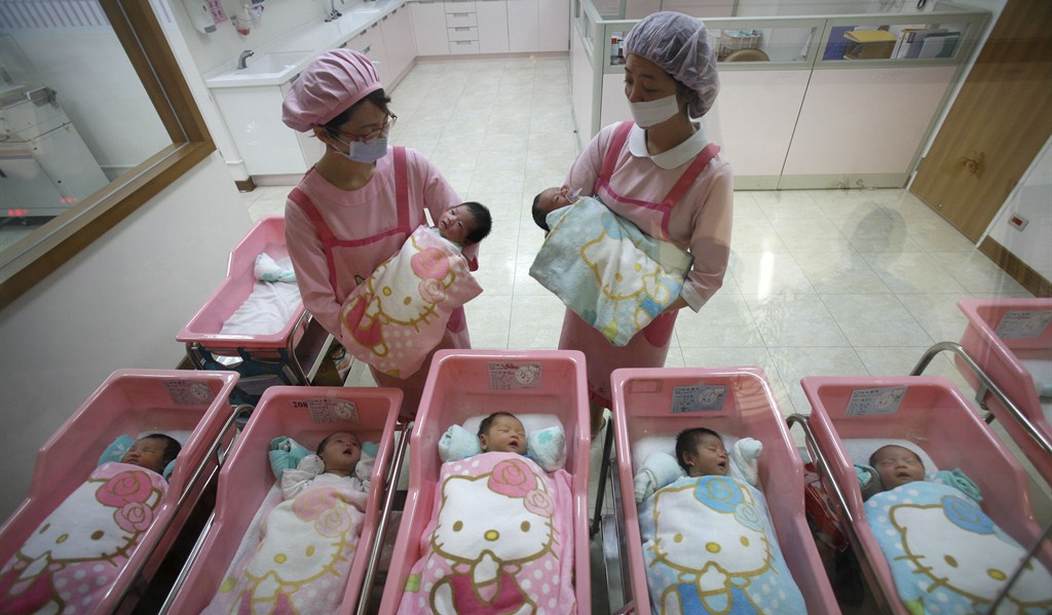We have previously raised the issue of declining global birth rates, particularly in industrialized nations and especially in the United States, and the ramifications this trend may have going forward. We already know that the measured population growth in America from July 1, 2020, to July 1st of this year was effectively zero. We’re still not doing as poorly as Japan and a few other countries, but the decline is alarming and it’s been prolonged in nature. We can’t simply blame it on the pandemic and higher death rates because this trend has been taking shape for decades. If you were hoping that things might turn around a bit as we emerge from all of this COVID activity, a new poll from Pew Research will likely throw cold water on that idea. A survey of American adults indicates that an increasing number of people are now saying they will probably never have children. (Yahoo News)
The proportion of U.S. adults who don’t have children and say they’re unlikely to want them in the future is growing, according to a new Pew Research Center survey published Friday.
Why it matters: The declining U.S. birth rate, which has dropped for the last six years, raises questions about whether the U.S. will have enough workers in years to come to sustain the economy and fund social programs, according to the Washington Post.
The big picture: The survey found that about 44% of non-parents aged 18-49 said it was “not too or not at all likely” that they will have children.
The 18-49 year age group is essentially the lion’s share of the people having children, though there are exceptions on either end of the scale. These are only the people who have not had children yet so they aren’t hitting the people who are parents and might opt to have more children, but it’s still a very significant slice of the population. So if nearly half of them (44%) feel they are “not likely” to have children to one degree or another, that adds up to a bigger hole in the population growth chart.
The survey looks even more deeply into the reasons for people giving these answers. You might take some hope from that because some of the people who believe they won’t have children aren’t saying that they don’t want them. They just don’t see it happening. Some cited medical issues or finances as the main reason, while others indicated that they hadn’t been able to find a partner. If those conditions change for the better, they might wind up becoming parents at some point after all.
But more than half (56%) of the non-parents said that they just “don’t want” children. Some blamed the “state of the world” right now as a reason not to bring a new life into the world. They pointed to diverse reasons such as climate change or other dismal views of where both society and the planet seem to be heading. It doesn’t seem as if that group will be changing their minds.
So what does this mean for humanity’s future? There are those (and I fall into this camp at times) who don’t see this as entirely bad news because the planet already has far too many people on it as it stands. If we suffered a sudden and catastrophic loss of our technology, perhaps from a huge solar flare or an EMP attack, we couldn’t feed more than 10% of the people on Earth for very long without all of the industrial tools we rely on produce and deliver our food.
But the process of getting from our current population to a more sustainable level of a billion or so would be beyond calamitous. It would be Armageddon. Even a gradual reduction over decades or a century would mean massive changes to nearly everyone’s lives in first-world nations like the United States. We’re already quickly approaching the point where the number of workers we have paying into our social safety net programs won’t be able to cover all of the costs involved in caring for the elderly. And the further you shift the balance between those pulling the cart and those riding in it, the closer you come to the point where the cart simply stops.
Sorry to be the bearer of ill news so close to Thanksgiving, but this has been a personal concern of mine for a very long time. And the trends we’re seeing are beyond alarming. Sadly, I am fresh out of suggestions as to anything that could feasibly be done about it. China recently loosened up its childbearing policies, allowing families to have three children when they were previously limited to one. But even that doesn’t look like it will make much of a difference in the coming decades. Some puzzles simply may not have an easy solution.








Join the conversation as a VIP Member